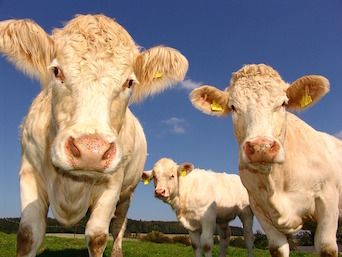$2.4M in Grants Aim to Address Rural Veterinarian Shortage
Funds from the 14 grants will be used to support rural veterinary services and relieve shortages of veterinarians.

In an effort to support rural veterinary services and relieve veterinarian shortages in parts of the United States, the USDA’s National Institute of Food and Agriculture has awarded $2.4 million in grants through its Veterinary Services Grant Program.
For the second time, the American Association of Bovine Practitioners (AABP) received a grant to provide workshops on business management for recent veterinary graduates. "Veterinarians are trained to be analytical problem solvers and as a profession are caregivers," said David Welch, DVM, project manager for the workshops. "Unfortunately, all too often they do not apply that same analytical effort and care to evaluate the profitability and sustainability of their practices."
RELATED:
- AVMA 2017: Protecting Backyard Poultry Owners Against Zoonoses
- New RSV Vaccine Technology Shows Promise in Cattle, Humans
In total, 14 grants were awarded to universities, associations, and veterinary hospitals divided equally into 2 categories: education/extension/training and rural practice enhancement. Following are this year’s recipients.
Education, Extension, and Training
- AABP: Through this grant, AABP will host 2 workshops to help educate veterinarians in underserved areas about better managing their practices as businesses and improving the services they provide.
- Iowa State University: The grant will support a project aimed at reducing zoonotic disease exposure in rural communities and will help rural veterinarians build their practices through the use of a zoonotic disease prevention strategy. A continuing education (CE) course and a toolbox of educational resources will be developed to help veterinarians effectively communicate zoonotic disease risks and prevention strategies.
- Michigan State University: This grant will support efforts to increase recruitment and long-term retention of food animal veterinarians in rural areas. The university plans to increase awareness and exposure to rural practice during veterinary training and provide access to readily available bovine CE opportunities tailored for recent graduates.
- Pennsylvania State University: The popularity of raising small poultry flocks has risen in Pennsylvania, and the state now has the highest incidence of human salmonellosis per capita. With its grant, the university will increase the number of animal health professionals capable of servicing small poultry flocks in Pennsylvania.
- Texas A&M University: With its 2018 grant, the university plans to provide clinical externships that will place students in veterinary practices in the rural panhandle and plains areas. The intention is to increase current students' clinical exposure to veterinary practice opportunities in these rural communities.
- University of Arkansas Cooperative Extension Service: This grant will be used to create a monthly food animal medicine workshop series for 2 years. Each workshop will provide CE credits in an effort to train existing mixed animal veterinarians and veterinary technicians so they can better integrate food animal services into their practices.
- University of Georgia: The funds from this grant will be used to train 4 microbiology residents at the university's Tifton Veterinary Diagnostic and Investigational Laboratory. The intended long-term benefit will be the production of 2 additional veterinary microbiologists who will be well trained to fill shortage needs, specifically in veterinary diagnostic labs or academia.
Rural Practice Enhancement
- Bear Lake Animal Hospital: The Idaho-based veterinary hospital’s grant will be used to expand veterinary services to small and large animal agriculture entities in the Bear Lake Valley. The project is expected to bring economical and readily accessible veterinary care to each agriculture animal producer, allowing them to make improved business and animal welfare decisions.
- Dutton Veterinary Services: According to this New York—based practice, the grant will be used to further its goal of providing more comprehensive services to veterinary clients in Otsego county. The money will also be used to provide educational opportunities for high school students, producers, and veterinary students.
- KN Veterinary Services: This grant will be used to expand current services to beef cattle clients in Clifton, Texas by improving existing facilities, incorporating new telemedicine technology, and offering new mobile facility features.
- Mountain Legacy Veterinary Services: In an area that has only 1 veterinarian providing large animal services, this grant will help facilitate a sustainable mixed animal practice in Gunnison, Colorado, as well as purchase necessary equipment and educate clients about proper vaccination protocols and new technologies that can facilitate better herd health management.
- Southwest Veterinary Services: With this grant, veterinarians in northern New Mexico facing a massive shortage will be able to acquire veterinary equipment and a portable veterinary unit to transport and house additional medical supplies. Educational seminars will be organized to emphasize the importance of reproductive efficiency and preventive care.
- Stonehouse Veterinary Service: The main goals for this grant include purchasing a portable chute and other equipment, and hiring support staff to help grow this Ohio-based practiced. The money will also be used to develop educational and preventive programs for clients to enable them to have healthier, more profitable herds.
- Uinta Veterinary Hospital: With its grant, this practice in Lyman, Wyoming will continue its ongoing program to mentor both veterinary and veterinary technician students in a rural setting. In addition, the hospital will set aside some of the funds to purchase equipment to expand its reach and increase food animal services.